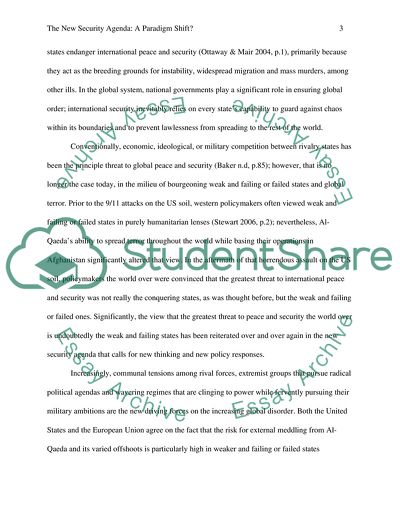Cite this document
(The New Security Agenda: A Paradigm Shift Essay, n.d.)
The New Security Agenda: A Paradigm Shift Essay. Retrieved from https://studentshare.org/politics/1861936-formative-essay
The New Security Agenda: A Paradigm Shift Essay. Retrieved from https://studentshare.org/politics/1861936-formative-essay
(The New Security Agenda: A Paradigm Shift Essay)
The New Security Agenda: A Paradigm Shift Essay. https://studentshare.org/politics/1861936-formative-essay.
The New Security Agenda: A Paradigm Shift Essay. https://studentshare.org/politics/1861936-formative-essay.
“The New Security Agenda: A Paradigm Shift Essay”. https://studentshare.org/politics/1861936-formative-essay.


